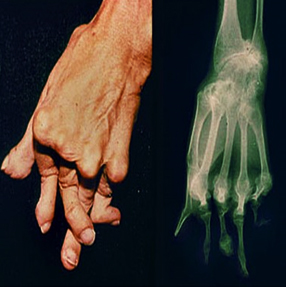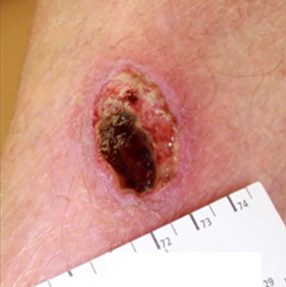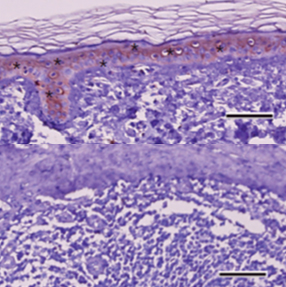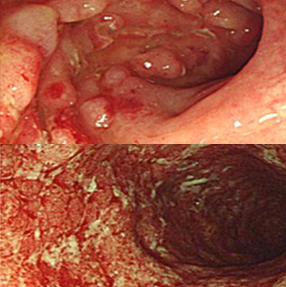Centers
01
About centers

-
We are developing small molecule biomaterials with immunomodulatory functions and using them to develop disease-specific therapies that are highly effective and reduce side effects and resistance.
-
As we enter the centenarian era, we're seeing a marked increase in autoimmune diseases, which attack the body's organs and tissues by mistaking our own cells for the enemy rather than foreign antigens.
-
The Center conducts collaborative research with leading domestic and international experts to develop treatments for autoimmune and inflammatory immune diseases, and is currently conducting research on autoimmune diseases, skin diseases, and cancer, among others.
02
Research areas
Center for Nanobiomaterials Research
-
Autoimmune diseases
-
Skin diseases
-
Cancer
-
Autoimmune diseases
Rheumatoid arthritis, a common autoimmune disease, is a chronic inflammatory condition characterized by polyarthritis.
In addition to these rheumatoid arthritis diseases, the center is also conducting research into the mechanisms underlying autoimmune diseases such as Alzheimer's and lupus, and the excessive immune response that leads to inflammation. -
Skin diseases
When immune cells in the skin layer are over-activated for a variety of reasons, it can lead to an inflammatory response, such as erythema, which is often accompanied by itching.
The center conducts research on inflammatory skin diseases such as psoriasis and atopy and wound treatment through collaborative research with dermatology professors from leading medical schools in Korea. -
Cancer
When the immune system is compromised, the body's immune response fails to eliminate abnormally proliferating cell masses and induces tumor growth and metastasis, eventually leading to cancer. Our center is focused on identifying mechanisms that can normalize the immune system and inhibit cancer growth and metastasis in skin cancers such as malignant melanoma, and developing therapeutics using these mechanisms.
03
Research performance
1. Startup
| Duration | Performing Organization | Key Contents |
|---|---|---|
| 2022.03 ~ | Kaine Science Co., Ltd | 대표이사 |
| 2016.08 | Kaine Science Inc. Starts Up | 창업자 |
2. Technology Transfer
| Duration | Contents |
|---|---|
| 2020.02.28 | Peptides for the treatment of inflammatory skin diseases and uses thereof, and other uses |
3. Patents
| International | Domestic | |
|---|---|---|
| Patent registration | 22 | 13 |
| Patent applications | 33 | 16 |
* Representative Performance
| Registration/Application | Date of registration | Entry Country | Invention name |
|---|---|---|---|
| International registration | 2023.11.14 | Japan | Use of peptides as treatments for autoimmune and bone diseases |
| International registration | 2023.11.03 | Canada | Use of peptides as therapeutic agent for autoimmune diseases and bone diseases |
| International registration | 2023.08.22 | America | Use of peptides as therapeutic agent for autoimmune diseases and bone diseases |
| International filing | 2023.12.12 | China | Use of peptides as treatments for autoimmune and bone diseases |
| International filing | 2023.04.13 | America | Use of peptides as treatments for autoimmune and bone diseases |
| International filing | 2023.02.27 | America | Use of peptides as treatments for autoimmune and bone diseases |
4. Thesis
| International | Domestic | |
|---|---|---|
| Thesis | 165th (SCI) | 11th |
* Representative Performance
| 10 | Myun Soo Kim, Dongmin Park, Sora Lee, Sunyoung Park, Kyung Eun Kim, Tae Sung Ki m, Hyun Jeong Park and Daeho Cho, Erythroid Differentiation Regulator 1 Strength ens TCR Signaling by Enhancing PLCγ1 Signal Transduction Pathway, International Journal of Molecular Sciences, 2022 Jan 23(2) 844-852 |
|---|---|
| 9 | Jisun Song;Sunyoung Park;Tae Sung Kim; Hyun Jeong Park and Daeho Cho, The Wound Healing Peptide, AES16-2M, Ameliorates Atopic Dermatitis In Vivo, Molecules, 2021 Feb 26(4) 1168-1176 |
| 8 | Myun Soo Kim, Sora Lee, Sunyoung Park, Kyung Eun Kim, Hyun Jeong Park and Daeho Cho, Erythroid Differentiation Regulator 1 Ameliorates Collagen-Induced Arthritis via Activation of Regulatory T Cells, 2020 Dec 15;21(24):9555 |
| 7 | Sunyoung Park, Kyung Eun Kim, Hyun Jeong Park and Daeho Cho, The Role of Erythroid Dierentiation Regulator 1 (ERDR1) in the Control of Proliferation and Photodynamic Therapy (PDT) Response, International journal of molecular sciences, 2020 Apr 21,2603 |
| 6 | Eun-Yeung Gong, Sora Lee, Sunyoung Park, Kyung Eun Kim, Myun Soo Kim, Daejin Kim, Hyun Jeong Park and Daeho Cho, Erythroid differentiation regulator 1 (Erdr1) enhances wound healing through collagen synthesis in acne skin, Archives of dermatological research, 2020 Jan 312:59-67 |
| 5 | Kyung Eun Kim, Suwon Jeon, Jisun Song, Tae Sung Kim, Min Kyung Jung, Myun Soo Kim, Sunyoung Park, Seung Beom Park, Jeong Min Park, Hyun Jeong Park and Daeho Cho, The Novel Synthetic Peptide AESIS-1 Exerts a Preventive Eect on Collagen-Induced Arthritis Mouse Model via STAT3 Suppression, International journal of molecular sciences, 2020 Jan 21,378 |
| 4 | Myun Soo Kim, Arim Lee, Daeho Cho, Tae Sung Kim, AIMP1 regulates TCR signaling a nd induces differentiation of regulatory T cells by interfering with lipid raft association, Biochemical and biophysical research communications, 2019 Jun 30, 514(3):875-880 |
| 3 | Myun Soo Kim, Sora Lee, Su-Jin Jung, Sunyoung Park, Kyung Eun Kim, Tae Sung Kim, Hyun Jeong Park, and Daeho Cho, Erythroid differentiation regulator 1 strengthens TCR signaling in thymocytes by modulating calcium flux, Cellular Immunology, 2019 Feb, 336:28-33 |
| 2 | Kyung Eun Kim, Sunyoung Park, Soyoung Cheon, Dong Yeon Kim, Dae Jin Cho, Jeong Min Park, Dae Young Hur, Hyun Jeong Park, and Daeho Cho, Novel Application of Radotinib for the Treatment of Solid Tumors via Natural Killer cell activation, Journal of I mmunology Research, 2018 Dec 31, 2018;9580561 -9580561 |
| 1 | Sora Lee, Myun Soo Kim, Su-Jin Jung, Daejin Kim, Hyun Jeong Park,and Daeho Cho,ERK activating peptide, AES16-2M promotes wound healing 2 through accelerating migration of keratinocytes, Scientific Reports, 2018 Sep 26, 8(1); 14398 |
04
Lead Professor
- Professor Daeho Cho
-
Center
Center for Nanobiomaterials Research
-
Email
cdhkor@korea.ac.kr




